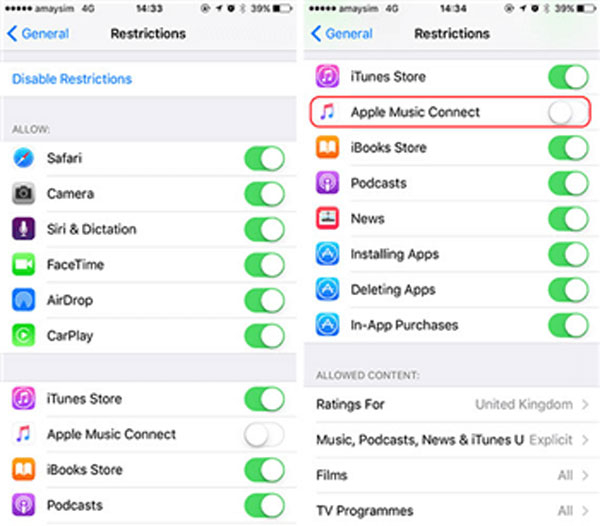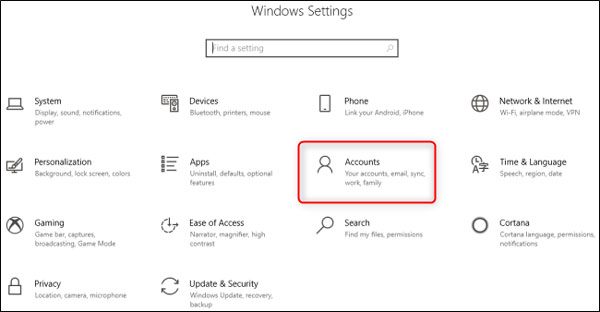The Importance of HVAC Maintenance for Energy Efficiency
updated on 12 20, 2024 | Dating Tips

Table of Contents
Proper hvac maintenance is essential for any household or commercial space striving to achieve optimal performance from their heating and cooling systems. Regular check-ups and adjustments not only ensure consistent comfort but also contribute significantly to cost reduction and energy savings. When these systems are in peak condition, they operate more efficiently, resulting in lower utility bills for occupants.
Engaging in professional servicing regularly can prevent minor issues from escalating into costly repairs. A well-tuned system enhances air quality and reduces strain on components, ultimately prolonging the lifespan of the equipment. Therefore, prioritizing hvac maintenance translates directly into significant savings over time, making it a smart choice for any property owner.
By focusing on ongoing care, individuals can enjoy a comfortable environment while also being conscious of their environmental footprint. With increased awareness of sustainability and resource management, ensuring efficient operation of heating and cooling systems has never been more crucial. Embracing these practices not only fosters a sense of responsibility but also promotes financial prudence.
How Regular HVAC Inspections Can Reduce Energy Costs
Consistent system evaluations play a crucial role in enhancing home comfort and minimizing energy expenses. By scheduling frequent check-ups, homeowners can identify inefficiencies that might otherwise go unnoticed, leading to excessive consumption of resources.
During professional servicing, technicians thoroughly examine heating and cooling units, making necessary adjustments and repairs that optimize their performance. This proactive approach not only helps in achieving substantial energy savings but also extends the lifespan of the equipment.
Additionally, inspections allow for the early detection of potential malfunctions. Addressing these issues promptly prevents more severe problems later on, which can lead to costly repairs and increased energy usage.
Moreover, regular evaluations ensure that filters are clean and systems operate at peak efficiency. This not only improves the air quality within the home but also contributes to a more balanced and comfortable environment, further reducing energy demands.
Role of Air Filters in Optimizing HVAC Performance
Air filters play a crucial part in ensuring the effective operation of heating and cooling systems. Their primary function is to trap dust, allergens, and other particulates, ultimately enhancing the indoor air quality while safeguarding the mechanical components of the system.
Regular replacement of air filters leads to significant benefits, including:
- Improved airflow: Clean filters allow seamless air circulation, reducing strain on the system.
- Extended equipment lifespan: A well-maintained filter helps prevent dust buildup, which can cause early wear and tear on combustion and cooling units.
- Enhanced comfort levels: Efficient air filters contribute to more consistent temperature and humidity levels in the living space.
To truly maximize energy savings, it is essential to engage in:
- Routine filter checks: Establish a schedule to inspect filters every month.
- Professional servicing: Seek expert help for thorough checks and replacements, especially during seasonal transitions.
- Choosing the right filter: Invest in filters that match your specific needs, be it for allergy reduction or higher filtration.
By prioritizing air filter care, homeowners can not only enhance the comfort of their living spaces but also achieve significant cost reduction in energy consumption over time.
Common HVAC Issues That Lead to Increased Energy Consumption
Many challenges can arise within a climate control system that contribute to higher utility bills and reduced comfort levels at home. Identifying these issues early on is crucial for maintaining a comfortable indoor environment while also ensuring energy savings.
One prevalent problem is dirty air filters. When filters become clogged, airflow diminishes, causing the system to work harder to maintain desired temperatures. This straining increases energy usage significantly. Regular checks and professional servicing can prevent this from occurring.
Another common issue is duct leaks. When air pathways are compromised, cooled or heated air escapes, leading to inefficient heating and cooling processes. This results in increased energy costs as the system compensates for the lost conditioned air. Sealing ducts and ensuring proper insulation offers substantial energy savings.
Thermostat malfunctions can also lead to heightened energy consumption. An inaccurately functioning thermostat may cause the system to run more frequently or for longer periods than necessary, disrupting home comfort. Upgrading to programmable options can help optimize performance and reduce unnecessary energy use.
Additionally, components such as compressors and fans may degrade over time, leading to decreased efficiency. Regular inspections seeking potential signs of wear and tear can catch these issues early, allowing for timely interventions before they escalate into major breakdowns.
Maintaining optimal functioning of a climate control system is essential not only for comfort and performance but also for keeping energy expenditures in check. Ignoring small issues can result in bigger problems, underscoring the necessity of a proactive approach to ensuring the system’s longevity and efficiency.
Seasonal Maintenance Tips to Enhance HVAC Functionality
To achieve peak performance from your heating and cooling systems, it’s crucial to follow some seasonal upkeep suggestions. Implementing these strategies can lead to significant cost reduction while ensuring home comfort throughout the year.
Spring and Summer Tips: As warmer temperatures approach, focus on cleaning and inspection. Start by checking the outdoor unit; remove any debris, leaves, or dirt that could obstruct airflow. Ensure that the refrigerant levels are adequate to promote optimal energy savings. It’s also a great time to test the thermostat, verifying that it operates correctly to maintain desired temperatures efficiently.
Fall and Winter Tips: When cooler weather arrives, pay attention to your heating system. Replace or clean air filters regularly to prevent dust buildup, which can hinder performance. Additionally, inspect ductwork for leaks and seal any gaps to improve air distribution and minimize wastage. Consider scheduling a professional evaluation to ensure your system is ready for peak demand during the colder months.
Regular upkeep not only enhances functionality but also prolongs the lifespan of your equipment. For more insights on how to keep your systems running smoothly, visit https://balancepointmechanical.com.
Ultimately, seasonal servicing is a proactive approach that offers benefits such as improved energy conservation and increased home comfort. By dedicating time to these tasks every season, you set the stage for a reliable and efficient heating and cooling experience, leading to ongoing energy savings. For further information, check out https://balancepointmechanical.com.
Q&A:
Why is HVAC maintenance crucial for energy efficiency?
HVAC maintenance is pivotal for energy efficiency because it ensures that heating, ventilation, and air conditioning systems operate at their best. Regular maintenance, such as cleaning filters and checking for refrigerant leaks, helps systems run smoothly, reducing energy consumption. When systems are neglected, they can become less efficient, leading to higher energy bills and increased wear and tear, which may result in the need for costly repairs or replacements.
What are common HVAC maintenance tasks homeowners should perform?
Homeowners can perform several routine HVAC maintenance tasks to enhance energy efficiency. These include replacing or cleaning air filters every 1-3 months, checking and sealing ductwork for leaks, cleaning outdoor condenser units, and ensuring that vents are unobstructed. Additionally, scheduling annual professional inspections for both heating and cooling systems is advisable to identify potential issues before they become significant problems.
How often should I have my HVAC system professionally maintained?
It’s recommended that homeowners schedule professional HVAC maintenance at least once a year for each system. Ideally, this means having the heating system serviced in the fall and the cooling system in the spring. Regular professional maintenance can catch issues early and ensure that your system is running efficiently, thereby optimizing energy use and extending the lifespan of the equipment.
What are the signs that my HVAC system needs maintenance?
Signs that your HVAC system may need maintenance include unusual noises, inconsistent temperatures in different rooms, higher energy bills, and a noticeable decrease in airflow. Additionally, if you notice an increase in humidity levels indoors or if your system frequently cycles on and off, these can be indicators that a maintenance check is needed to keep the system operating efficiently.
Can neglecting HVAC maintenance really lead to higher energy bills?
Yes, neglecting HVAC maintenance can lead to significantly higher energy bills. An unmaintained system can operate inefficiently due to dirty filters, clogged ducts, or mechanical issues. This inefficiency forces the system to work harder to maintain the desired temperature, which increases energy use and ultimately raises utility costs. Regular maintenance helps to prevent these issues and ensures that the system runs optimally, saving money in the long run.
Why is regular HVAC maintenance important for energy efficiency?
Regular HVAC maintenance is fundamental for energy efficiency because it ensures that the heating and cooling systems operate at their optimal capacity. When the systems receive routine checks, any minor issues can be identified and resolved before they escalate into larger, more costly problems. For instance, cleaning or replacing filters allows for unobstructed airflow, which reduces the amount of energy required to maintain comfortable temperatures. Additionally, maintenance includes checking refrigerant levels, inspecting ductwork for leaks, and ensuring all components are functioning properly, which further enhances the overall energy usage of the system.
What specific maintenance tasks should homeowners perform on their HVAC systems?
Homeowners should carry out several key maintenance tasks to keep their HVAC systems running smoothly. First, they should replace or clean air filters every one to three months, depending on usage and the type of filter. Secondly, inspecting and cleaning the outdoor unit and ensuring it is free from debris will help maintain proper airflow. It’s also advisable to schedule professional maintenance checks at least once a year, where technicians can thoroughly inspect components like the condenser, evaporator coils, and ductwork. Additionally, checking and calibrating the thermostat periodically ensures that the temperature settings are accurate, which can contribute to energy savings.















